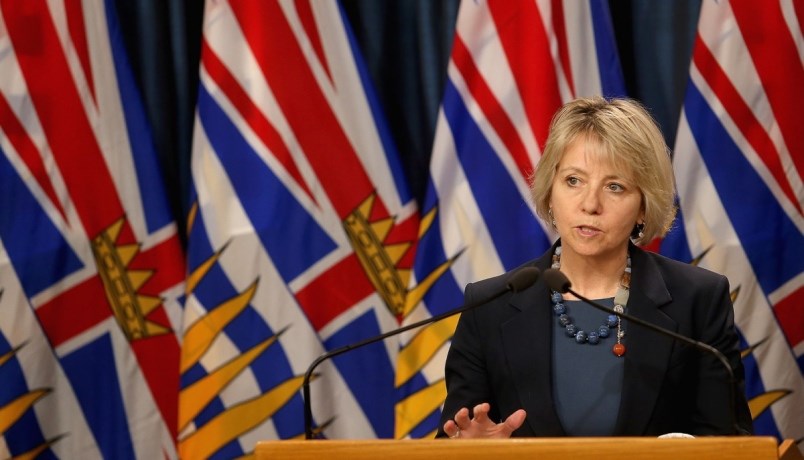One new case of COVID-19 has been confirmed in the Northern Health region, B.C. provincial health officer Dr. Bonnie Henry said on Thursday.
As of Thursday, three patients in the Northern Health region were in critical care and seven had fully recovered. A total of five people have been hospitalized with COVID-19 in northern B.C. since the pandemic began.
The news came on a day when Henry announced six more deaths from the pandemic in British Columbia, including the first two deaths on Vancouver Island. As of Thursday, there still have been no deaths from COVID-19 reported in the Northern Health region.
The total number of cases province-wide increased by 55, to 1,121. The number of COVID-19 patients being treated in hospitals on Thursday was 139, of which 68 were in critical care.
"It's a challenging time. We now have more than a million cases of this disease worldwide," Henry said. "We now have more than 1,100 cases in B.C. and the number of people hospitalized in critical care continues growing, even if by a small amount."
The number of patients who have fully recovered from the disease increased by 35, to a total of 641 province-wide.
Cases of COVID-19 have been reported in 21 long-term care and assisted care facilities – all in the Lower Mainland, Henry said. On Wednesday, Henry said the majority of those facilities have been limited to a single case, because of early testing and prevention measures.
The province also had it's first confirmed case of COVID-19 in a correctional facility, Henry said, at the Okanagan Correctional Centre.
"This is something we've been concerned and preparing for," Henry said. "This is the first test that has been positive in a (correctional) facility in British Columbia."
Corrections staff and provincial health authorities have been working together on measures to prevent an outbreak in B.C. prisons, including limiting visitors, health screening and keeping new inmates in isolation for the first 14 days, Henry said. An outbreak in a prison would be difficult to contain if it got into the general population.
"The person who became ill was isolated," Henry said. "We're now monitoring the others in that pod."
Provincial health authorities are preparing to receive some of the hundreds of Canadians who have been trapped on the cruise ships MS Zaandam and the MS Rotterdam off the coast of Florida.
"Some people from B.C. are being flown home from the cruise ship Zaandam off the coast of Florida," Henry said.
On Thursday Prime Minister Justin Trudeau said a chartered plane will bring home the asymptomatic Canadians aboard the ships in the next few days. Initially, 248 Canadians were aboard the MS Zaandam, Global Affairs has said.
Passengers have been stranded aboard for three weeks, and four elderly passengers aboard the Zaandam have died.
Holland America said 97 guests and 136 crew members on the ships have developed flu-like symptoms. There are 442 guests and 603 crew on the Zaandam, and 808 guests and 583 crew on the Rotterdam.
Holland America, which operates the cruises, said U.S. officials cleared both ships to dock on Thursday afternoon, and would allow all guests fit to travel to disembark.
"Guests who still have symptoms will remain on board and disembark at a later date to be finalized after they have fully recovered," the cruise line said.
Henry said all the passengers from the ships who come to Canada will be required to self-isolate for 14 days, and B.C. health officials will be taking additional screening efforts because of the high risk of infection aboard the ships.
The provincial health officer said she is recommending British Columbians avoid all unnecessary travel, both within B.C. and outside of the province.
Henry especially urged people to avoid travelling to smaller, rural communities that have limited medical resources.
"We know people are travelling to vacation homes and cabins," Henry said. "I am asking people to forgo those trips. We need to do that now to protect vulnerable people in those communities."
— With files from The Canadian Press



